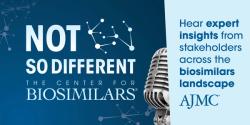© 2026 MJH Life Sciences™ and The Center for Biosimilars - Biosimilars, Health Economics & Insights. All rights reserved.
Lawrence Shulman, MD: The Global Impact of Biosimilar Trastuzumab
Lawrence Shulman, MD, deputy director for clinical services and director of the Center for Global Cancer Medicine at the Abramson Cancer Center at the University of Pennsylvania, discusses the global impact of biosimilar trastuzumab.
Transcript:
In your work with the World Health Organization (WHO), have you seen a positive impact of biosimilar availability for patients in countries with limited resources?
In 2015, WHO approved trastuzumab as an essential medicine for cancer. That was the first expensive, patented medicine that they put on their essential medicines list for cancer. Our hope was that that would help to drive the price down, and that’s not in fact happened.
In most of the places that I’m aware of, in sub-Saharan Africa, or areas of the Caribbean or South America, trastuzumab is still not available. It’s still not affordable and we’re not close to making it affordable. I think WHO has played its role in this, companies have picked up the biosimilar torch and have developed their own products, but we still need some effort to bring the price down or find other funding mechanisms that can make drugs like trastuzumab, which can be life-saving, make them affordable to a larger portion of the world’s population.



